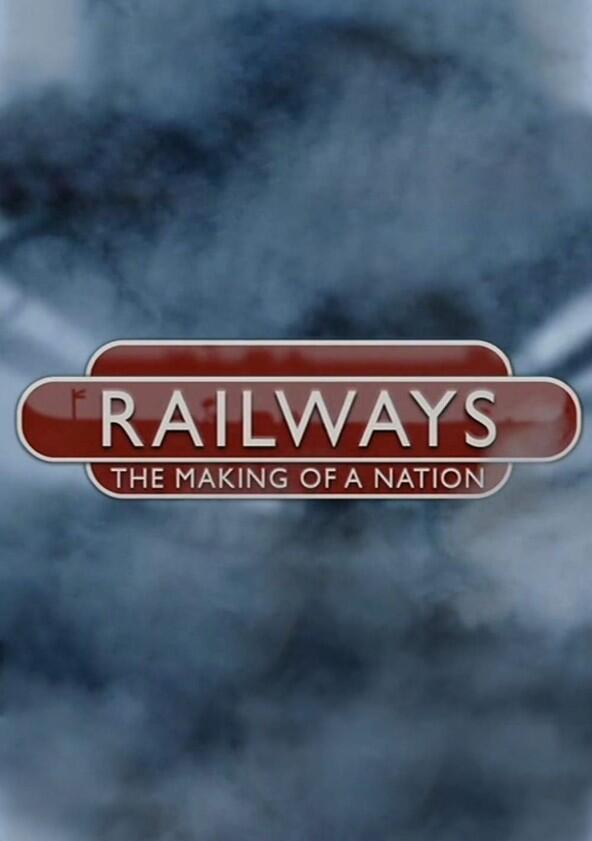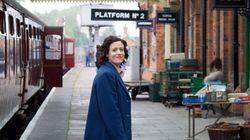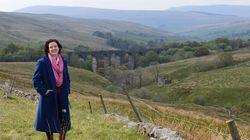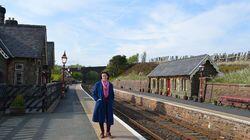Railways: The Making of a Nation - Season 1

Season 1

Episodes

Time
Historian Liz McIvor explores how Britain's expanding rail network was the spark to a social revolution, starting in the 1800s and continuing through to modern times. A fast system of transportation shaped so many areas of our industrial nation - from what we eat to where we live, work and play. The railways generated economic activity but they also changed the nature of business itself. They even changed attitudes to time and how we set our clocks. Our railways may have reflected deep class divisions, but they also brought people together as never before, and helped forge a new sense of national identity.
This episode looks at how you organise a rail network in a country made up of separate local time zones and no recognised timetables. Before the railways, our country was divided and local time was proudly treasured. Clocks in the west of the country were several minutes behind those set in the east. The railways wanted the country to step to a new beat in a world of precise schedules and timetables that recognised Greenwich Mean Time. Not everyone was keen to step in line, and some complained about the new world of one single time zone and precise schedules.

Capitalism and Commerce
Episode two focuses on Capitalism and Commerce. The railways stimulated great changes to the nation's economy and they also changed the way business was done. This encouraged a new generation of mechanical engineers, skilled workers, managers and accountants. Originally, local railway entrepreneurs viewed trains as vehicles for shifting raw materials, stock and goods, but they soon discovered that there was money to be made from transporting people also.
Places such as Derby became known as ‘railway towns'. Derby was central to the new network and home to the engineers who made and maintained locomotives and carriages. However, the railway ‘boom' of the 1840s also came with a ‘bust'. A new age of middle-class shareholders who invested in the railways soon discovered what goes up can also go down. In addition, there were stories of railway rogues and dodgy dealings. Railway companies recovered from the crash and continued to develop as complex national business organisations capable of building great structures such as the Ribblehead Viaduct in Yorkshire and St Pancras Station in London.

The Age of Leisure
The idea of excursions to distant places became popular from the 1840s onwards, as people began taking day trips and seeing parts of the country they had never seen before.
However, it wasn't all sun, sea and sand - some excursion trains were set up to satisfy the public's desire to witness public executions and bare-knuckle prize fighting; other lines transported people to enjoy horse racing and sporting events.
Thousands visited resorts, spa towns and the coast, and a new wave of Victorian tourists spent their money on holidays and visited hotels at train stations and beyond. The ultimate experience was often to head to the hills and sample clean air, far away from the industrial grime and pollution, and working-class northerners now had access to the beautiful Lake District.
Historian Liz McIvor explores how Britain's expanding rail network was the spark to a social revolution, starting in the 1800s and through to modern times. A fast system of transportation shaped many areas of our industrial nation - from what we eat to where we live, work and play. The railways generated economic activity but they also changed the nature of business itself. They even changed attitudes to time and how we set our clocks! Our railways reflected deep class divisions, but they also brought people together and helped forge a new sense of national identity.

The New Commuters
The railways allowed Brits to live further away from their places of work. Throughout the 19th and 20th centuries the railways encouraged the development of suburbia inhabited by a new type of resident and worker - the commuter.
In some cases new places emerged on the map, simply because of the railways - places like Surbiton and Kingston-upon-Thames. Liz visits nation's largest commuter zone, London and the south east of England. The Victorian rail network was never part of one single grand plan, but it emerged and evolved, line by line, over decades. For today's commuters, work is still going on to build a network that keeps up with their needs.
Historian Liz McIvor explores how Britain's expanding rail network was the spark to a social revolution, starting in the 1800s and through to modern times. A fast system of transportation shaped many areas of our industrial nation - from what we eat to where we live, work and play. The railways generated economic activity but they also changed the nature of business itself. They even changed attitudes to time and how we set our clocks! Our railways reflected deep class divisions, but they also brought people together and helped forge a new sense of national identity.

Food and Shopping
The railways changed what we eat and the culinary tastes of the population. Moving produce around at speed was suddenly possible - fresh meat, wet fish, dairy, fruit and veg, were now widely available. And it was in London where arguably the nation's diet changed the most. With a new system of rapid transport it was now possible for the capital to enjoy food supplies from all corners of the nation. Diets improved in terms of the variety and quality of food available. Victorian men and women developed a taste for one particular dish that would be popular with the masses for generations to come - fish and chips.

A Touch of Class
Trains reflected class divisions, with separate carriages for first, second and third class passengers. Yet, seen at the time, they were also bringing people physically closer together.
In the early 1800s Britain was clearly divided between upper, middle and working classes. On the railways they shared the same stations and arrived at the destination at the same time. The trains gradually acted as a great catalyst, mixing the country up as people travelled to regions and places for the first time.
Locations, accents, cultures and fashions were all new. The nation's relationship with royalty also changed. Queen Victoria was now able to venture far and wide across her kingdom and visit more of her subjects. Over time Brits developed a stronger sense of shared identity and culture.
Recently Updated Shows

NCIS
NCIS (Naval Criminal Investigative Service) is more than just an action drama. With liberal doses of humor, it's a show that focuses on the sometimes complex and always amusing dynamics of a team forced to work together in high-stress situations. Leroy Jethro Gibbs, a former Marine gunnery sergeant, whose skills as an investigator are unmatched, leads this troupe of colorful personalities. Rounding out the team are Anthony DiNozzo, an ex-homicide detective whose instincts in the field are unparalleled and whose quick wit and humorous take on life make him a team favorite; the youthful and energetic forensic specialist Abby Sciuto, a talented scientist whose sharp mind matches her Goth style and eclectic tastes; Caitlin Todd, an ex-Secret Service Agent; and Timothy McGee, an MIT graduate whose brilliance with computers far overshadows his insecurities in the field; Assisting the team is medical examiner Dr. Donald "Ducky" Mallard, who knows it all because he's seen it all, and he's not afraid to let you know. From murder and espionage to terrorism and stolen submarines, these special agents travel the globe to investigate all crimes with Navy or Marine Corps ties.

Landman
Set in the proverbial boomtowns of West Texas, Landman is a modern day tale of fortune seeking in the world of oil rigs. The series is an upstairs/downstairs story of roughnecks and wildcat billionaires fueling a boom so big, it's reshaping our climate, our economy and our geopolitics.

The Creep Tapes
Based on a collection of videotapes in the secret vault of the world's deadliest and most socially uncomfortable serial killer, who hires his victims to film him for the day under false pretenses, each episode exposes a new victim from one of the fabled 'Creep Tapes'.

America's Funniest Home Videos
ABC's longest-running primetime entertainment show, America's Funniest Home Videos, returns for season 36 this fall with the same mission -- giving families something genuinely funny to enjoy together on Sunday nights.
"AFV," the longest-running primetime entertainment show in ABC history, returns for season 36 with the same mission - to provide viewers with hysterical moments that fly by at a dizzying pace.

The Real Housewives of Potomac
Just up the river from our nation's capital lies a hidden gem—Potomac, Maryland. Its rolling hills, gated mansions, sophisticated prep schools, and exclusive country clubs all serve to keep the area invitation-only. Sprinkled throughout this community are a handful of old-line, wealthy African-American families who have historically broken racial barriers to provide a life of privilege for their children. The Real Housewives of Potomac follows the upscale lives of six intriguing, well-to-do women: Gizelle Bryant, Katie Rost, Karen Huger, Charrisse Jackson-Jordan, Robyn Dixon, and Ashley Darby, all of whom have fought for their places in this society by way of legacy or marriage. In a town where entry is granted only through class, pedigree, and lineage, how far will these ladies go to secure their spot at the top of this prestigious circle?